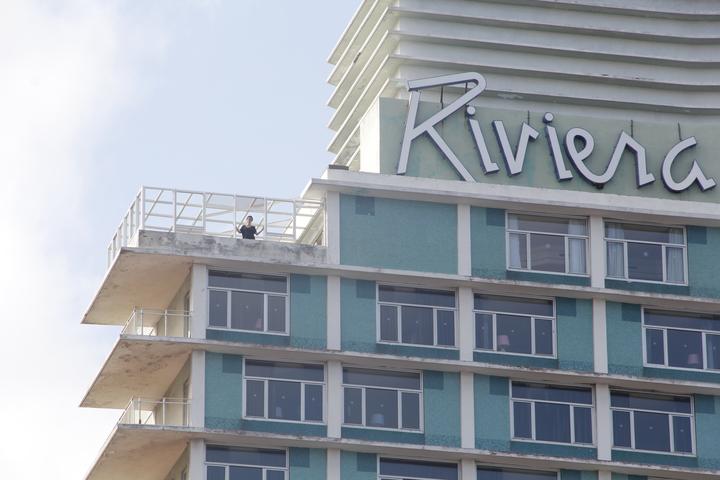Alexander Gray Associates, New York, United States
09 Jan 2016 - 06 Feb 2016

Coco Fusco, The Confession, 2015, digital film. Courtesy: Artist
On view at Alexander Gray Associates will be a survey of her seminal videos created over the past two decades. Premiering is her latest installation Confidencial, Autores Firmantes (2015), which examines Cuba’s systematic censorship of key literary voices during the 1970s. Featuring works from the early 1990s through the present, the exhibition focuses on Fusco’s critical examination of the politics of identity, military power, the history of racial thought, and post-revolutionary Cuba.
Fusco’s most recent videos on Cuba, La Confesión (2015)—created for the 56th Venice Biennale, Italy—and La botella al mar de María Elena (2015)—premiered at the 2015 Göteborg International Biennial for Contemporary Art, Sweden—explore the cases of Cuban poet Heberto Padilla and writer María Elena Cruz Varela, respectively deconstructing official narratives of political oppression. Cuba has been a subject of study for Fusco for three decades, during which she has produced videos; exhibitions; performances; cultural exchanges and numerous texts, included her recently published book, Dangerous Moves: Performance and Politics in Cuba (2015, Tate Publishing).
Her research on Cuba led to her collaboration with Dr. Lilian Guerra (professor, University of Florida), which resulted in the mixed-media installation Confidencial, Autores Firmantes (2015). Through this work, Fusco further explores the Padilla affair by presenting twenty-one facsimiles of official memorandums and letters from 1971—found by Guerra in the archives of the Cuban Ministry of Culture. The documents detail orders and methods by which to censor publications by intellectuals deemed “anti-Cuban” due their open disagreement with the government’s detainment of the poet Heberto Padilla, and their skepticism regarding the motives of Padilla’s ensuing “confession” that he had betrayed the revolution. The documents are presented alongside original Cuban editions of books by authors such as Gabriel García Marquez, Julio Cortázar, and Mario Vargas Llosa who signed two open letters to Fidel Castro that were published in Le Monde in 1971 in protest of the Cuban government’s treatment of Padilla. This room-size installation is an archive of a key historical moment that redefined Cuba Revolutionary government’s relationship with progressive intellectuals of that era out and inside the island, and cast a long shadow over its relationship with its literary cadre. Autores Firmantes mirrors a moment in time both past and present, in the artist’s words, “A state may produce the absence of its own archive while retaining its own contents for a future exercise of force.”